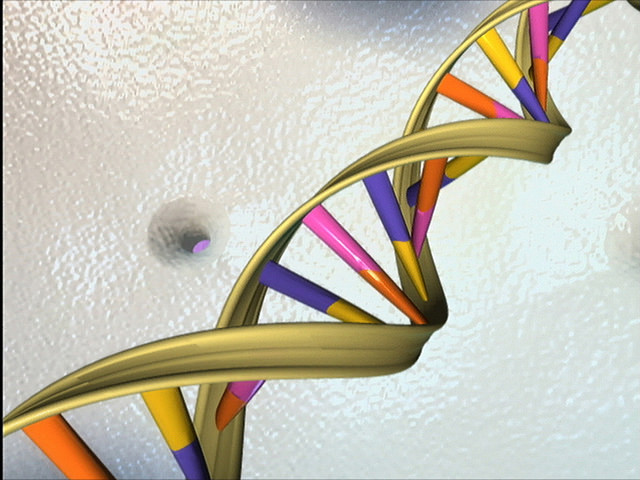I had what I suppose most would consider a strange reaction to Karoline Lewis’ excellent article on “A New Genesis,” that spoke of the interweaving of memory and promise to produce new life. My immediate thought was, “that’s the Genetic Gospel.”
Genetics shows us why we are constantly in need of new beginnings and new life. It demonstrates why we cannot simply discover new life and take it from there, and ride it, however imperfectly, into the sunset and into eternal life.
Genetics shows us, memory and promise are the necessary basic building blocks of life. Without them, life would not exist.
The universe that God created is governed by laws: of gravity, thermodynamics, electromagnetism, etc. We can understand our world because we can count on it being, in most essential ways, the same today as it was yesterday.
The earth will orbit the sun in a predictable way, chemical reactions will occur faithfully, providing food and oxygen, our senses will give us accurate and reliable information about our surroundings that, because of memory, we can compare to the past.
This predictable order and structure is evidence of God’s faithfulness — without it, nothing could be saved, nothing could be trusted. God wants us to know that both God and the world the God created can be trusted. That they will operate today pretty much the same way they did yesterday.
Our memories are what tell us we can count on God’s universe to be what God made it to be. Knowing this allows us to function in our world and to plan for the future.
On the other hand …
Imagine if everything in the universe were 100% reliable and predictable. Imagine a world in which everything happens according to a plan, a formula. It would be very easy on God. It would be easy on us. No problems, ever.
But if the universe were like that, then nothing new would ever take place. In a world in which life simply repeats itself in an endless cycle, nothing ever changes or evolves. It would be a robotic world, a sterile world of machines, performing exactly as programmed. It would be a universe in which nothing interesting or important would ever happen. I don’t think you could call that life at all.
In other words, life cannot exist unless change is part of the equation.
So how do you create a universe that balances the opposite needs of constancy and change? Of memory and promise? God has accomplished this balance through the beauty of genetics.
God preserves constancy, reliability, faithfulness through the use of DNA replication, a template system that makes offspring the same as their parents. DNA relies on memory of what went before to preserve continuity. This insures that baby humans do not come out as ostriches, or cabbages, or slime mold but as something very much like what the parents were.
At the same time, God uses random genetic recombination, jumping genes, and mutation to produce change, so that at each birth a new life is created — a person entirely different from any that ever existed before.
The Gospel of John tells us that in the beginning was the Word, and what has come into being in this Word was life. Life cannot remain the same old, same old, and still be life. Nor can life exist in chaos, without memory.
When viewed this way, our constant need for new beginnings, new life, is not a badge of shame displaying our failure. Rather it is evidence that God intends for us to live. Nothing is alive and functioning in our universe unless it retains memory of the past and new possibilities for the future.
Have you ever met a creative person who could create something and then say, “There, I’m done. I don’t need to create anything ever again.”
Not likely. Nor is it even imaginable that God, the ultimate creator, could create a world and then never create again. Genetics tells us that God never will stop creating life, and that memory and promise are the tools God uses to do it. God uses the same tools on us, has put it into our DNA, so that the memory of the past and possibilities for change are always at hand for us to experience new life.

